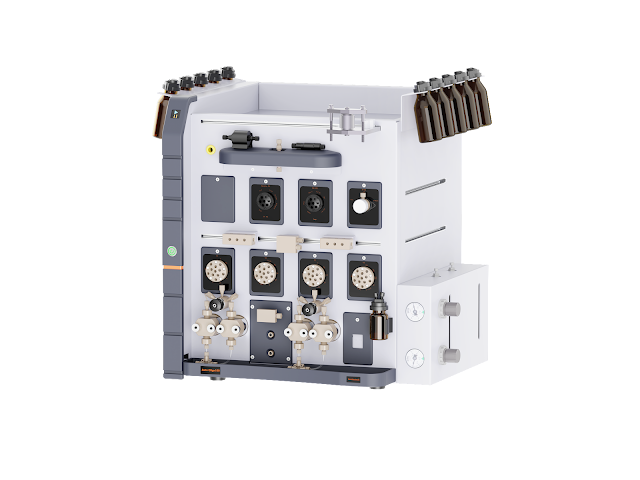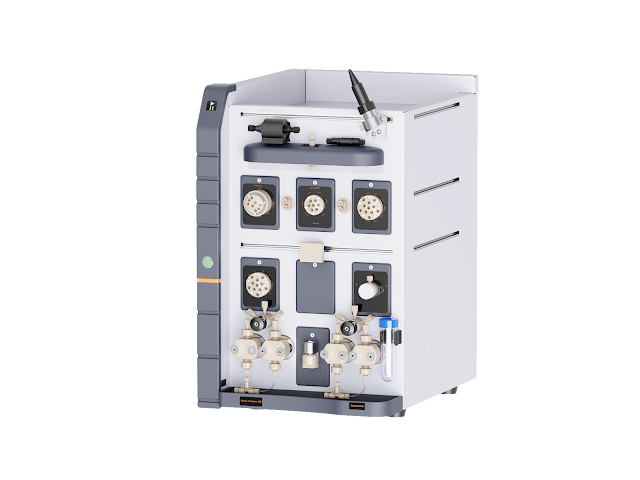Advancements in Oligonucleotide Synthesis and the Role of DNA Synthesizers
Oligonucleotide synthesis is a crucial technique in the field of molecular biology, offering researchers the ability to create customized DNA and RNA sequences for various applications. This process has evolved significantly over the years, thanks in part to the innovation brought about by DNA synthesizers. In this article, we'll delve into the fascinating world of oligonucleotide synthesis, explore the role of DNA synthesizers, and discuss their impact on genetic research.
A Molecular Building Block:
Oligonucleotides are short sequences of nucleotides, the building blocks of DNA and RNA, which play a vital role in various biological processes. These custom-designed sequences are used in diverse applications, such as PCR (Polymerase Chain Reaction), DNA sequencing, gene synthesis, and more. Oligonucleotide synthesis involves the chemical assembly of specific nucleotide sequences in a controlled manner.
The Evolution of Oligonucleotide Synthesis:
Over the years, oligonucleotide synthesis has undergone significant advancements, enabling researchers to synthesize longer, more complex sequences with greater precision. Early methods involved manual synthesis, which was time-consuming and prone to errors. However, with the advent of automated synthesizers, the process became more efficient and reliable.
Catalysts of Innovation:
DNA synthesizers are instrumental in oligonucleotide synthesis. These machines automate the chemical processes required to assemble nucleotide sequences, making the process faster, more accurate, and reproducible. DNA synthesizers are equipped with sophisticated technology and software that allow researchers to input their desired sequence and generate the corresponding oligonucleotide quickly.

Customization and Precision:
One of the critical advantages of DNA synthesizers is their ability to customize oligonucleotides precisely. Researchers can specify the sequence, length, and modifications they require, resulting in tailored molecules for their experiments. This level of precision is essential for applications like gene editing and drug development.
High-Throughput Capabilities:
DNA synthesizers also offer high-throughput capabilities, allowing researchers to synthesize multiple oligonucleotides simultaneously. This is particularly valuable in genomics and large-scale experiments where a vast number of sequences are needed. The automation provided by DNA synthesizers significantly accelerates the research process.
Impact on Genetic Research:
The role of DNA synthesizers in genetic research cannot be overstated. They have revolutionized the field by enabling scientists to explore genetic information at an unprecedented pace. The ability to synthesize custom oligonucleotides has opened doors to a wide range of applications, from understanding the genetic basis of diseases to developing new therapies.
Future Directions in Oligonucleotide Synthesis:
As technology continues to advance, we can expect further innovations in oligonucleotide synthesis and DNA synthesizers. Researchers are constantly pushing the boundaries of what is possible, exploring new methods, and enhancing existing ones. This evolution promises to unlock even more insights into genetics and biology.
Conclusion:
In conclusion, oligonucleotide synthesis and DNA synthesizers have become indispensable tools in the field of genetic research. They have transformed the way scientists manipulate and study DNA and RNA, leading to breakthroughs in various scientific disciplines. As we look ahead, the future of genetic research appears promising, with ongoing advancements in oligonucleotide synthesis and DNA synthesizer technology. To stay updated on the latest developments in this field, visit inscinstech.com.cn, a valuable resource for researchers and enthusiasts alike.
This company provides valuable insights and information on cutting-edge technologies, making it a valuable resource for researchers and enthusiasts in the field of genetic research. Stay informed and explore the future of genetic research through their platform.
.jpg)

Comments
Post a Comment